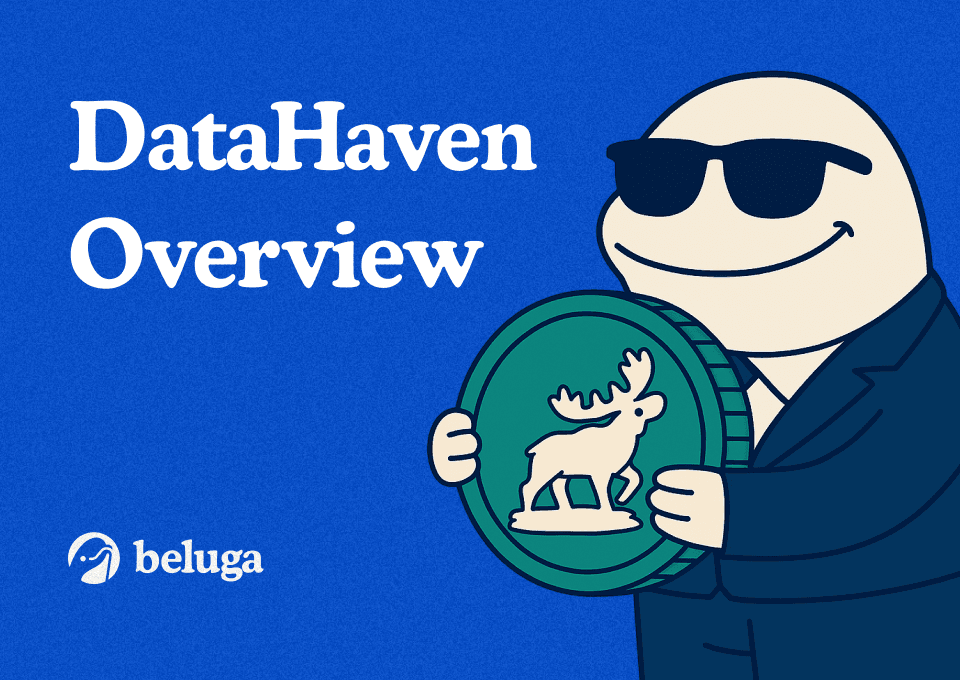Why this Crypto OG Left Bitcoin to Start an AI Project?
By Pratik Bhuyan Updated April 25, 2025

Summary
- Erik Voorhees launched Venice (VVV), a decentralized AI platform on Base, to ensure AI remains free from centralized control.
- Venice prioritizes user privacy by encrypting data locally, using decentralized GPUs, and avoiding centralized storage.
- The $VVV token powers Venice’s ecosystem, with staking mechanisms for API access and a strong market valuation.
Introduction
Erik Voorhees, a name synonymous with Bitcoin’s libertarian ethos, has long been a pillar of crypto’s decentralization movement. From launching Satoshi Dice (a 2012 gambling app that once dominated Bitcoin transactions) to founding ShapeShift, Voorhees championed financial sovereignty. Today, Voorhees is charting a new course with Venice, a privacy-first AI platform built on Coinbase’s Base network. While he hasn’t technically left Bitcoin per se, he has shifted his focus to a more pressing and forward-looking challenge. Here’s why a Bitcoin OG is diving headfirst into AI and what that means for the future of digital autonomy.
The Genesis of Venice
Voorhees’ crypto career was built on a simple creed: decentralization trumps control. Bitcoin’s separation of money and state mirrored his belief in individual sovereignty. ShapeShift, his non-custodial exchange, doubled down on this philosophy by eliminating KYC and centralized oversight.
But by 2023, Voorhees saw a new threat: AI authoritarianism. As governments and Big Tech tightened their grip on AI models like ChatGPT, Voorhees recognized a parallel to early crypto battles. In his own words, Voorhees believes that if AI is to shape our future, it must do so without the constraints of centralized oversight.

In a May 2024 blog post titled The Separation of Mind and State, he argued: Just as Bitcoin separated money from state, AI must separate mind from state. He was quoted saying:
At the dawn of powerful machine intelligence, we should ask ourselves, what of monopoly control over mind?
A Vision Built on Privacy
At its core, Venice champions the idea that true machine intelligence should enhance human capability without compromising personal privacy. Unlike many major AI providers that log, analyze, and often censor user interactions, Venice’s approach is different.
Your prompts, responses, and creative outputs are encrypted in your browser, processed via decentralized GPUs and never stored on central servers. This means your intellectual curiosity stays yours alone—no oversight, no surveillance, and certainly no unwarranted gatekeeping.

Here’s what sets it apart:
- Privacy by Design: Unlike traditional AI platforms that store and monitor user interactions, Venice encrypts all data in your local browser. No downloads, no accounts, and no centralized storage mean your creative process remains your own.
- Censorship Resistance: Venice refuses to filter content, even partnering with models like China’s DeepSeek R-1—despite its geopolitical baggage—to ensure uncensored access.
- Decentralized Infrastructure: Built on the Morpheus network (Arbitrum blockchain) and later Base, Venice leverages web3 for permissionless access
Role of the $VVV Token in Venice
At the heart of Venice’s privacy-focused vision is the $VVV token. Out of 100 million tokens, 50% were airdropped. A quarter was allocated to over 100,000 early Venice users, and the other quarter targeted AI agents and protocols on Base, such as Virtuals, Luna, and VaderAI. This distribution strategy not only boosts adoption but also aligns the incentives of both human users and AI agents.

Staking for API Access: Venice has engineered a unique staking mechanism where locking up $VVV tokens grants you free, ongoing access to the platform’s API. The rule is straightforward: staking 1% of tokens unlocks 1% of the total API capacity, ensuring a transparent resource allocation and eliminating pay-per-request fees.
Shortly after its launch, $VVV achieved a fully diluted valuation of around $1.6 billion, reflecting strong market confidence and a growing community of over 13,200 tokenholders.
Challenges & Controversies
Like any other new token, Venice hasn’t been immune to the turbulence of the crypto world.
- Regulatory Target: Uncensored AI models attract scrutiny. DeepSeek’s ties to China already draw skepticism, though Voorhees insists that when you use DeepSeek via Venice, none of your data goes to the Chinese government.
- Token Centralization: 35% of $VVV tokens are held by Venice’s treasury, raising decentralization concerns.
- Ethical Dilemmas: Unfiltered AI risks misuse, and Voorhees acknowledges this. But, he also argues that censorship is a slippery slope as tools are neutral while intent is not.
- Technical Glitches: During our testing, the website crashed twice out of three attempts while generating results for a specific prompt.
Final Thoughts
As an early Bitcoin advocate and the founder of ShapeShift, he has a long history of challenging the status quo. In his own words, Voorhees believes that if AI is to shape our future, it must do so without the constraints of centralized oversight. By launching Venice on Base, he is not abandoning his Bitcoin roots but rather extending his commitment to decentralization into a new and promising domain.
Whether Venice succeeds hinges on scaling its infrastructure, navigating regulation, and proving that uncensored AI can coexist with ethical use. For Voorhees, the stakes are clear: “Venice respects you as a sovereign individual, and believes privacy is not only a human right, but necessary for civilizational advancement.”
If you liked this article, it’s time to level up. Get the Best Free Crypto Newsletter now! Insightful. Curated. Essential - The Beluga Brief.
Join the Beluga Brief
Dive deep into weekly insights, analysis, and strategies tailored to you, empowering you to navigate the volatile crypto markets with confidence.
Never be the last to know
and follow us on X








